LONDON – Sugars in the diet should make up no more than 3 per cent of total energy intake to reduce the significant financial and social burdens of tooth decay, new research from University College London (UCL) and the London School of Hygiene and Tropical Medicine has found. The study analysed the effect of sugars on tooth decay.
As defined by the World Health Organization Nutrition Guidance Expert Advisory Group, free sugars include “monosaccharides and disaccharides added to foods by the manufacturer, cook or consumer, and sugars naturally present in honey, syrups, fruit juices and fruit concentrates”.
Tooth decay is the most common non-communicable disease in the world, affecting 60–90 per cent of school-age children and the vast majority of adults. In the US, 92 per cent of adults aged 20–64 have experienced decay in at least one of their permanent teeth. The treatment of dental diseases constitutes 5–10 per cent of total health expenditure in industrialised countries.
The researchers used public health records from countries across the world to compare dental health and diet over time across large populations of adults and children. They found that the incidence of tooth decay was much higher in adults than in children, and increased dramatically with any sugar consumption above 0 per cent of energy. Even in children, an increase from near-zero sugar to 5 per cent of energy doubles the prevalence of decay and continues to rise as sugar intake increases.
Only 2 per cent of people of all ages living in Nigeria had tooth decay when their diet contained almost no sugar, around 2 g per day. This is in stark contrast to the US, where 92 per cent of adults have experienced tooth decay.
Current guidelines from the World Health Organization set a maximum of 10 per cent of total energy intake from free sugars, with 5 per cent as a target. This equates to around 50 g of free sugars per day as the maximum, with 25 g as the target. The latest research suggests that 5 per cent should be the absolute maximum, with a target of less than 3 per cent.
“Tooth decay is a serious problem worldwide and reducing sugars intake makes a huge difference,” said study author Aubrey Sheiham, Emeritus Professor of Dental Public Health at UCL. “Data from Japan were particularly revealing, as the population had no access to sugar during or shortly after the Second World War. We found that decay was hugely reduced during this time, but then increased as they began to import sugar again.”
Researchers recommend policy changes
In order to address the issue of tooth decay, the authors recommend a series of radical policy changes to reduce sugar consumption.
“Our top priority is not to allow the idea of a magic single bullet to solve the problem to be developed,” said co-author Prof. Philip James, Honorary Professor of Nutrition at the London School of Hygiene and Tropical Medicine and past President of the World Obesity Federation (formerly the International Association for the Study of Obesity). “A fundamental aspect of public health planning is to develop society-wide measures which impact on the health of the whole community. There now needs to be an explicit revision of population dietary goals as it relates to every aspect of government policy.”
“We need to make sure that use of fruit juices and the concept of sugar-containing treats for children are not only no longer promoted, but explicitly seen as unhelpful. Food provided at nurseries and schools should have a maximum of free sugars in the complete range of foods amounting to no more than 2.5 per cent of energy.”
“Vending machines offering confectionary and sugary drinks in areas controlled or supported financially by local or central government should be removed. We are not talking draconian policies to ‘ban’ such sugar-rich products, which are available elsewhere, but no publicly-supported establishment should be contributing to the expensive problems of dental caries, obesity and diabetes.”
“The food industry should be told that they should progressively reformulate their products to reduce or preferably remove all the sugars from their products. New food labels should label anything above 2.5 per cent sugars as ‘high’. Given the politics of big business, the most governments may do is to reduce the limit from 10 per cent to 5 per cent but our paper suggests that it should be 2.5 per cent.”
Call for sugar tax
“There is a huge issue about how to curtail the flow of sugars in the food chain and divert sugar. If produced at all, it should be converted into alcohol, as in Brazil, to be used as fuel for vehicles. We need a European agreement that all sugar beet production should be phased out in the EU. This production is totally unnecessary and has always been unnecessary as the sugar cane producers of the lower income countries produce enough. As part of the US/EU trade agreement, the US should no longer be promoting the export of sugar and the US should also curtail production.”
“A sugars tax should be developed to increase the cost of sugar-rich food and drinks. This would be simplest as a tax on sugar as a mass commodity, since taxing individual foods depending on their sugar content is an enormously complex administrative process.”
The study, titled “A reappraisal of the quantitative relationship between sugar intake and dental caries: The need for new criteria for developing goals for sugar intake”, was published online on 16 September in the open-access journal BMC Public Health.
LONDON, UK: Lately, there have been increasing efforts to curb Britain’s high sugar consumption. Although the British Dental Association (BDA) has ...
NEWCASTLE UPON TYNE – A new study, which was commissioned by the World Health Organization (WHO), has provided new evidence that the reduction of the ...
LONDON – In order to tackle and reverse the obesity and diabetic epidemic, health experts from across the globe have formed a group called Action on ...
DUBLIN, Ireland: The Irish Dental Association (IDA) has called on the government to tackle the high incidence of periodontal disease in this country by ...
LONDON, UK: The Alliance for a Cavity-Free Future (ACFF) is a not-for-profit organisation formed by a group of dental professionals. According to the ACFF, ...
DUNDEE, Scotland: As the global health community marks World Mental Health Day today, the dental profession is being urged to confront a pressing concern ...
LONDON, England: A new national campaign led by ORDO is urging the UK government to abolish the so-called “tooth tax” by removing VAT from children’s ...
LONDON, England: While chewing gum may be considered a somewhat undesirable habit, sugar-free varieties have been proved to be highly beneficial for oral ...
MANCHESTER, UK: Restrictions related to SARS-CoV-2 transmission are easing, and dental professionals need to start planning the eventual reopening and ...
LEIPZIG, Germany: Near-infrared transillumination will be the topic of a webinar presented by the Dental Tribune Study Club on 25 March. In the free online ...
Live webinar
Tue. 24 February 2026
6:00 pm UTC (London)
Prof. Dr. Markus B. Hürzeler
Live webinar
Tue. 24 February 2026
8:00 pm UTC (London)
Prof. Dr. Marcel A. Wainwright DDS, PhD
Live webinar
Wed. 25 February 2026
4:00 pm UTC (London)
Prof. Dr. Daniel Edelhoff
Live webinar
Wed. 25 February 2026
6:00 pm UTC (London)
Live webinar
Thu. 26 February 2026
1:00 am UTC (London)
Live webinar
Tue. 3 March 2026
4:00 pm UTC (London)
Dr. Omar Lugo Cirujano Maxilofacial
Live webinar
Wed. 4 March 2026
1:00 am UTC (London)
Dr. Vasiliki Maseli DDS, MS, EdM



 Austria / Österreich
Austria / Österreich
 Bosnia and Herzegovina / Босна и Херцеговина
Bosnia and Herzegovina / Босна и Херцеговина
 Bulgaria / България
Bulgaria / България
 Croatia / Hrvatska
Croatia / Hrvatska
 Czech Republic & Slovakia / Česká republika & Slovensko
Czech Republic & Slovakia / Česká republika & Slovensko
 France / France
France / France
 Germany / Deutschland
Germany / Deutschland
 Greece / ΕΛΛΑΔΑ
Greece / ΕΛΛΑΔΑ
 Hungary / Hungary
Hungary / Hungary
 Italy / Italia
Italy / Italia
 Netherlands / Nederland
Netherlands / Nederland
 Nordic / Nordic
Nordic / Nordic
 Poland / Polska
Poland / Polska
 Portugal / Portugal
Portugal / Portugal
 Romania & Moldova / România & Moldova
Romania & Moldova / România & Moldova
 Slovenia / Slovenija
Slovenia / Slovenija
 Serbia & Montenegro / Србија и Црна Гора
Serbia & Montenegro / Србија и Црна Гора
 Spain / España
Spain / España
 Switzerland / Schweiz
Switzerland / Schweiz
 Turkey / Türkiye
Turkey / Türkiye
 UK & Ireland / UK & Ireland
UK & Ireland / UK & Ireland
 International / International
International / International
 Brazil / Brasil
Brazil / Brasil
 Canada / Canada
Canada / Canada
 Latin America / Latinoamérica
Latin America / Latinoamérica
 USA / USA
USA / USA
 China / 中国
China / 中国
 India / भारत गणराज्य
India / भारत गणराज्य
 Pakistan / Pākistān
Pakistan / Pākistān
 Vietnam / Việt Nam
Vietnam / Việt Nam
 ASEAN / ASEAN
ASEAN / ASEAN
 Israel / מְדִינַת יִשְׂרָאֵל
Israel / מְדִינַת יִשְׂרָאֵל
 Algeria, Morocco & Tunisia / الجزائر والمغرب وتونس
Algeria, Morocco & Tunisia / الجزائر والمغرب وتونس
 Middle East / Middle East
Middle East / Middle East




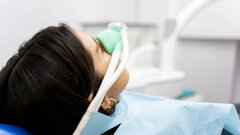






















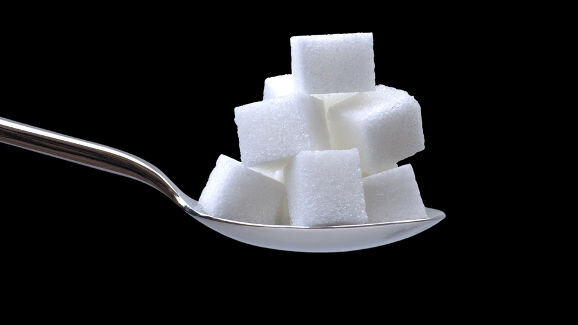




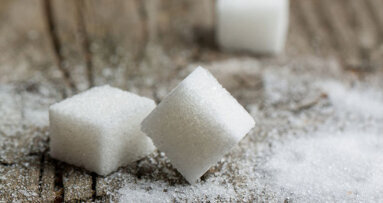
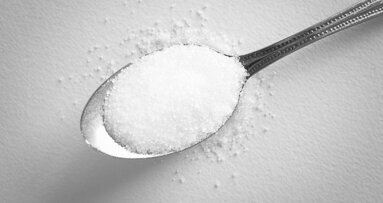






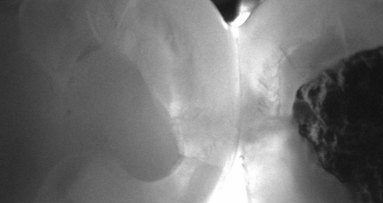









To post a reply please login or register